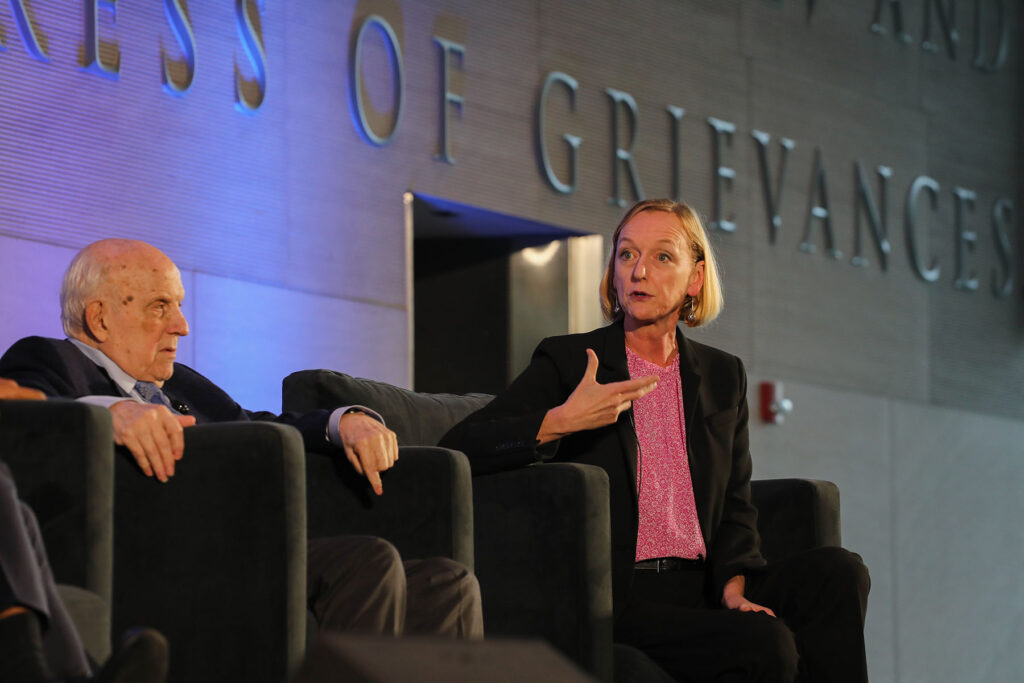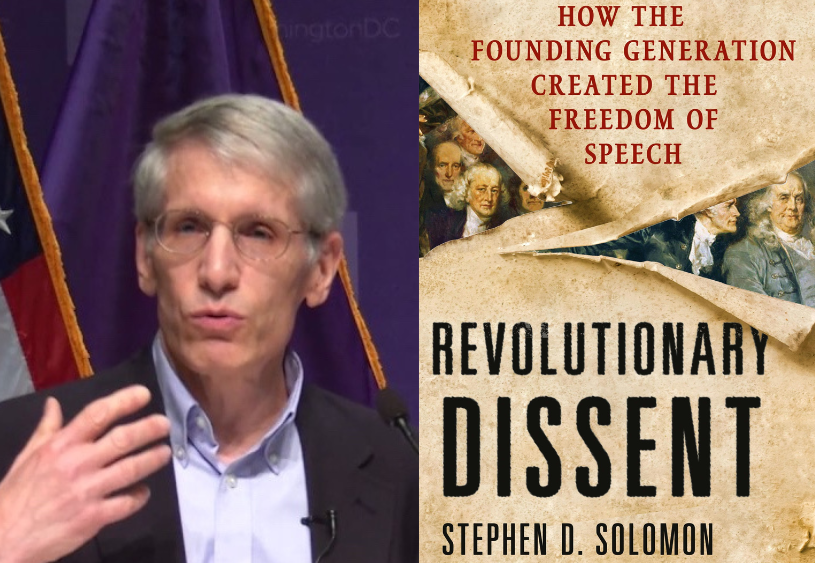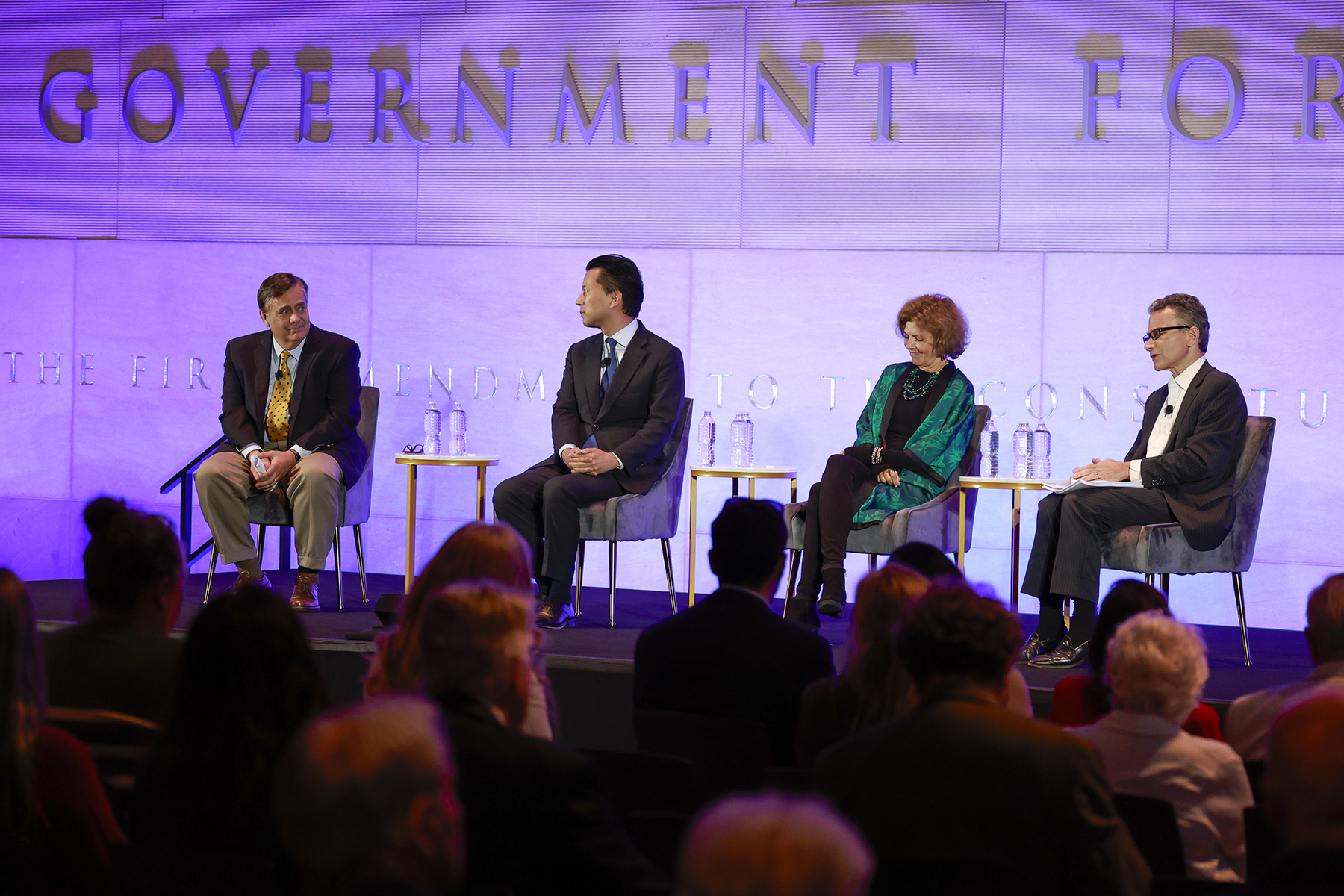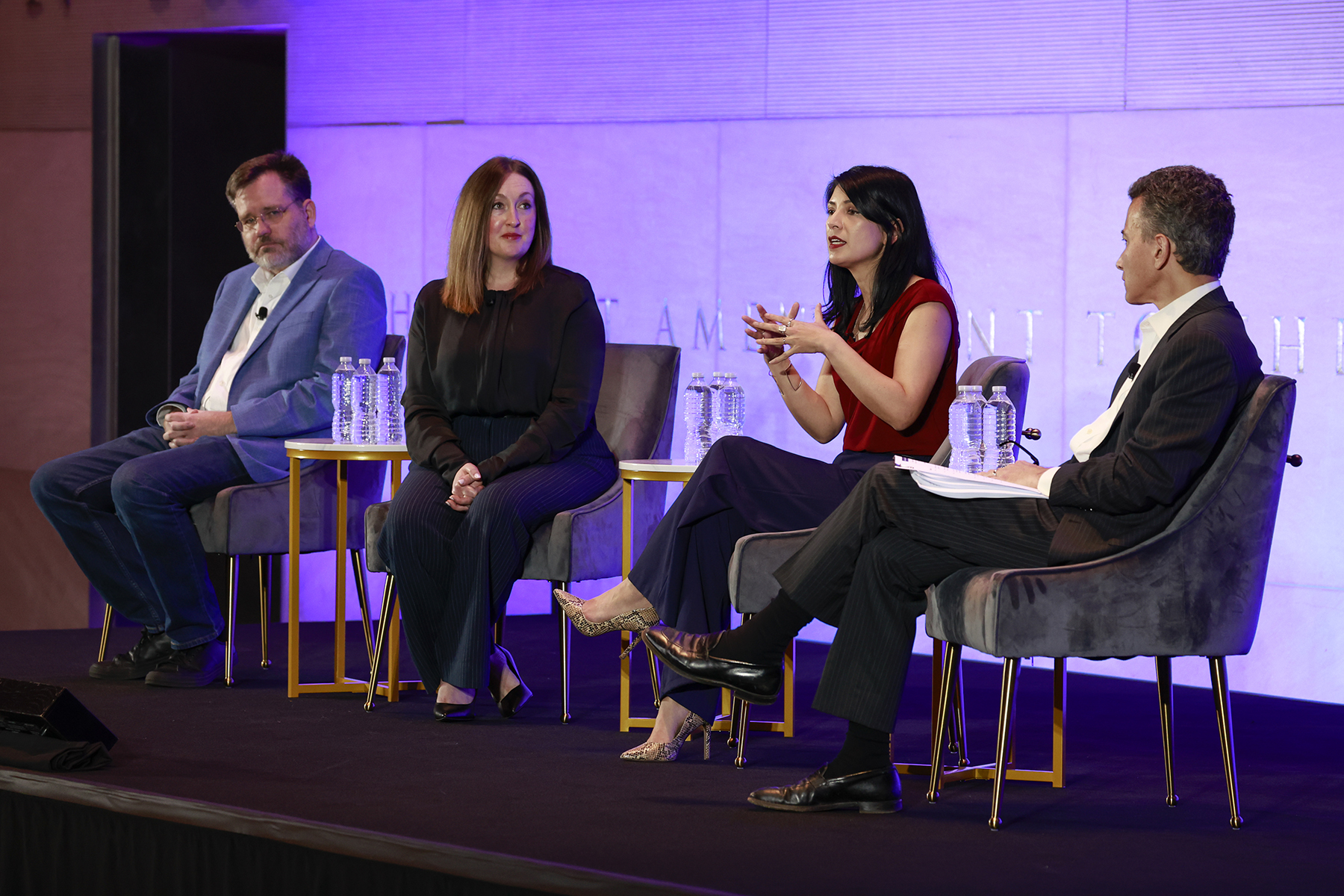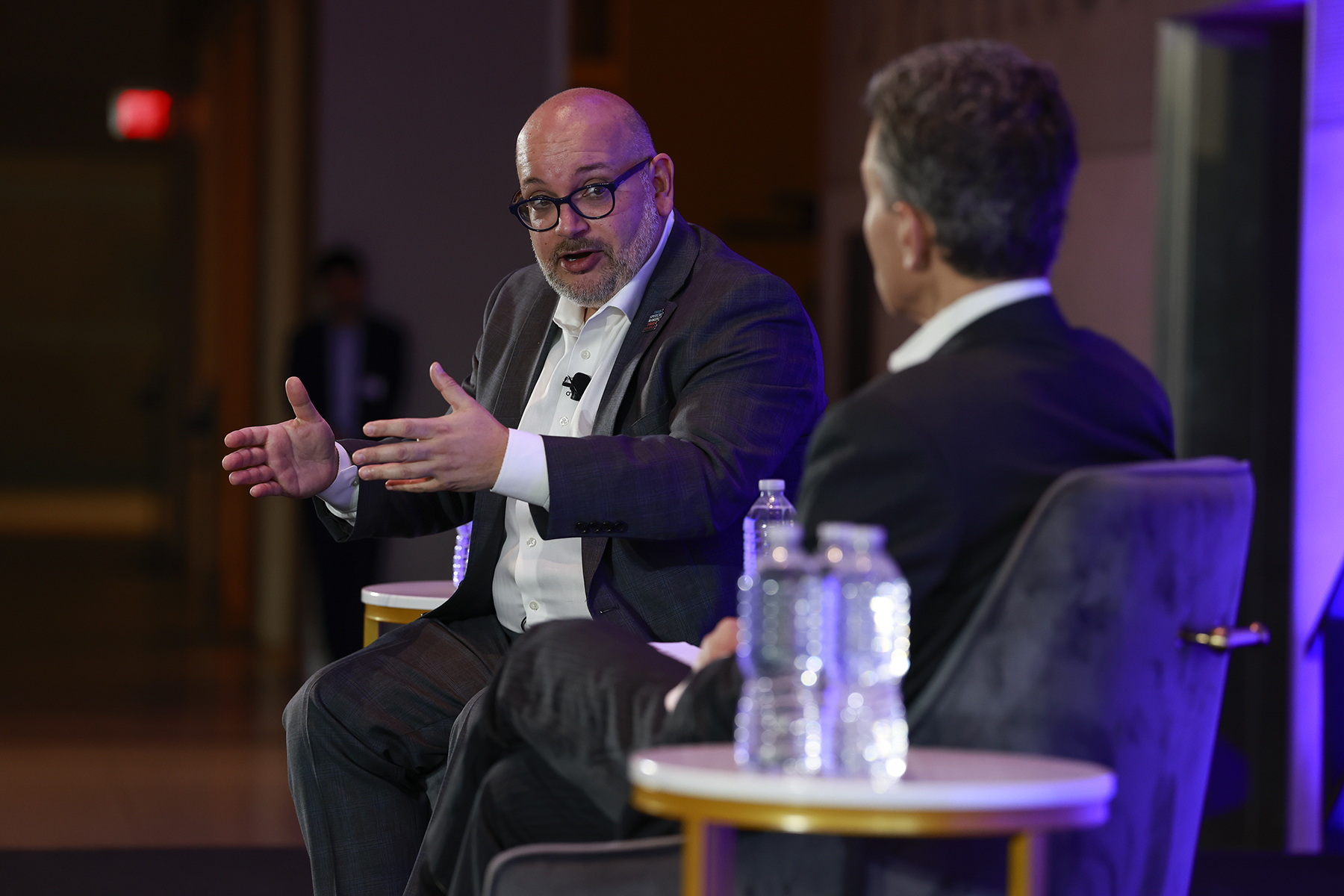Leading First Amendment scholars convened to discuss the rapidly changing technological landscape and its looming implications for the First Amendment at the inaugural National First Amendment Summit in Philadelphia on Wednesday.
The event, hosted by the National Constitution Center in partnership with a coalition of leading free speech organizations, including First Amendment Watch, addressed the increasing threats to freedom of expression.
Moderator Bruce Brown, executive director of the Reporters Committee for the Freedom of the Press, was joined on stage by Jameel Jaffer, executive director of the Knight First Amendment Institute at Columbia University; Floyd Abrams, senior counsel at Cahill Gordon & Reindel LLP; and Lyrissa Lidsky, professor at University of Florida Levin College of Law.
Jaffer said that “social media has democratized speech in a lot of ways, but it’s also introduced a whole new set of pathologies.”
He spends less time worrying, he said, about the “erosion” of First Amendment doctrine, and more time worrying about the “calcification” of First Amendment doctrine.
“I think that First Amendment doctrine needs to be responsive to technological change,” he said.
Abrams, who famously argued and won the landmark Pentagon Papers before the Supreme Court in 1971, said that while he believes that future litigation will focus on social media, he’s not worried about “new law.”
“I think the direction we should be most focused on, or at least I think the courts should be most focused on, is preserving old law,” he said, “and not necessarily very old law, but applying principles which have made us the most free … in the history of the world and not moving away from that.”
Lidsky noted that, in addition to technological changes, there is also an ongoing shift in the way young people view speech protections.
“The younger generation sees emotional harm as a threat to their very safety in a way that might justify speech regulations,” she said. “That tension between equality and liberty comes out differently for a lot of students in the younger generation, and convincing them that their views may not win and they need neutral principles to adopt to ensure liberty for all of us, is a harder sell than it used to be.”
You can watch the full panel here. You can find the other panel discussions featuring the country’s leading experts on free speech here.
Tags
